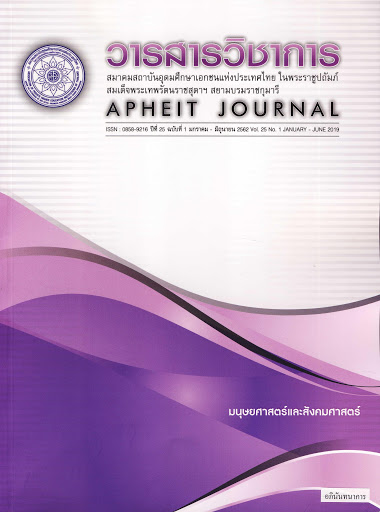Factors Related in Decision Making towards Learning the Japanese Language for People in Saraburi Province
บทคัดย่อ
The purpose of this research was to study the decision behavior and factors relating to decision making on studying Japanese language of the population in Saraburi province. The results was to use in strategies adjustment for managing Japanese language schools or Japanese language tutorial institutions. 400 Japanese language learners from Japanese language schools in Saraburi Province were drawn to be the sample of the study. The data were analyzed by frequency, percentage, mean, standard deviation, t-test, f-test, and Pearson correlation. The results revealed that marketing mix factors in the overall was at a high level. The overall level of psychological factors were at a high level. The overall level of reference group was at a moderate level as well as the cultural factors. The overall level of decision making to study Japanese was at a high level. The results showed that participants with different personal factors (gender, age, education level and different occupations) had different decision on studying Japanese at the statistical significance level of 0.05. In addition, the marketing mix factors, psychological factors, reference group factors, and cultural factors had a positive relationship with the decision on studying Japanese at the statistical significance level at 0.05. The analysis of behavioral factors affecting the studying Japanese language with different factors had different decision on studying Japanese at the statistical significance level of 0.05.





